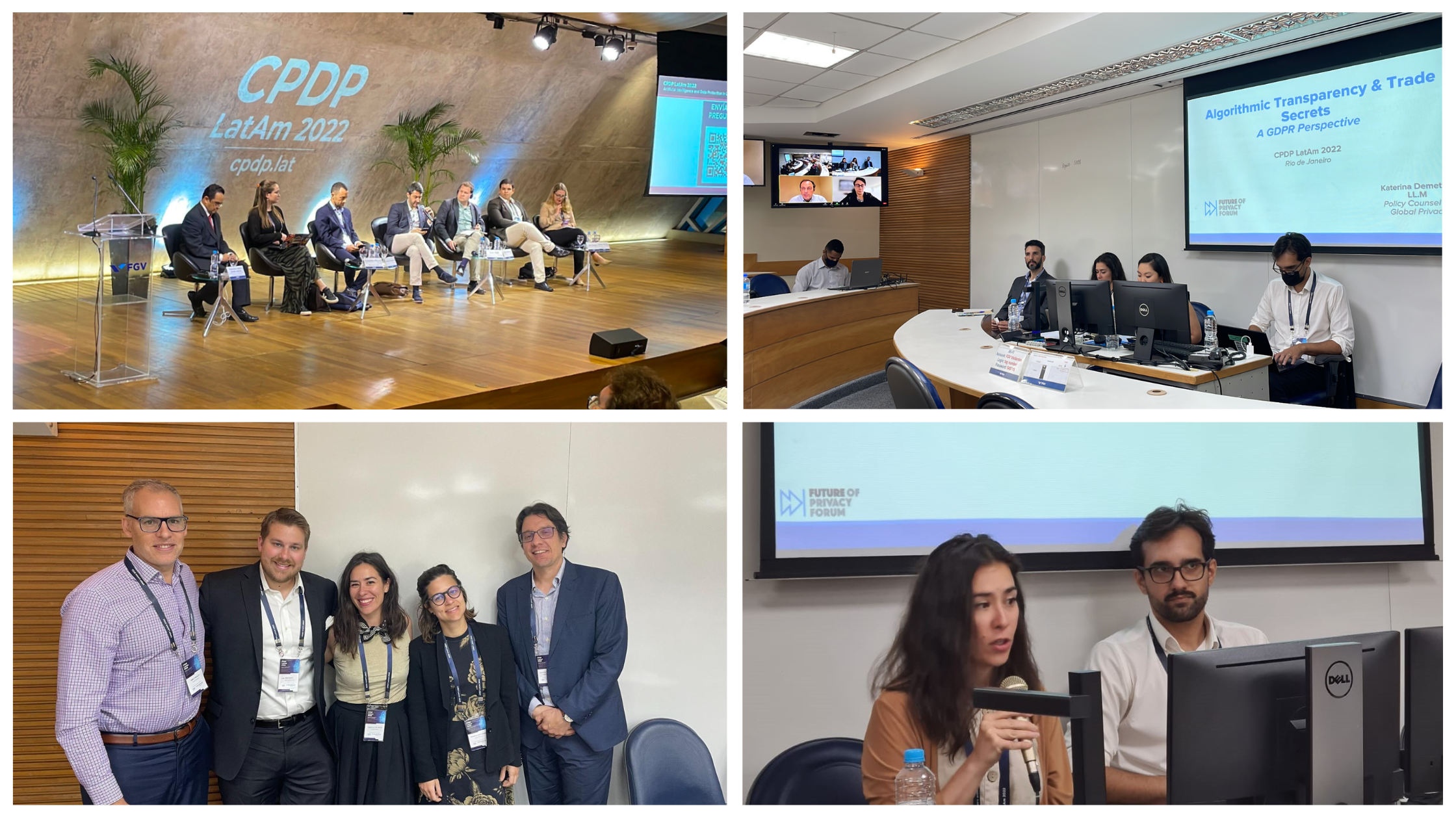Showing results for virg xped promo code free spinks tanzania

New Report on Limits of “Consent” in India’s Data Protection Law
[…] appear similar to the EU’s “legitimate interests,” but whose scope still remains uncertain. The PDP Bill would have required consent for processing of personal data to be free, informed, specific, clear, and capable of being withdrawn. For consent to qualify as “informed” under the PDP Bill, the data controller would have to provide certain […]

Introduction to the Conformity Assessment under the draft EU AI Act, and how it compares to DPIAs
[…] risks’ (which trigger a set of stringent obligations, including conducting a CA), ‘limited risks’ (with associated transparency obligations), to ‘minimal risks’ (where stakeholders are encouraged to build codes of conduct). The draft AIA is being introduced in an already existing system of laws that regulate products and services intended to be placed on the […]

FPF at CPDP LatAm 2022: Artificial Intelligence and Data Protection in Latin America
[…] secrecy claims are not able to prevent individuals from effectively exercising their privacy rights. Panelists discussed issues such as the necessity of disclosing application or software source code when providing “explainability” of decision-making to data subjects, and debated the level of detail necessary in disclosures required under transparency obligations. Ms. Demetzou focused on how […]

New Report on Limits of “Consent” in Vietnam’s Data Protection Law
[…] the fundamental level, Vietnam’s Constitution provides for an inviolable right to privacy and legal protection of information regarding personal privacy and personal and familial secrecy. The Civil Code gives expression to these rights in a limited manner by, among others, requiring an individual’s consent for collection, use, retention, or publication of information about that […]

New Report on Limits of “Consent” in the Philippines’ Data Protection Law
[…] purposes. The stated policy aim of the DPA is to protect the fundamental human right to privacy of communication while ensuring the free flow of information to promote innovation and growth. To that end, the DPA provides data subjects with a number of rights over their data, including rights to information about how their […]

New Report on Limits of “Consent” in Australia’s Data Protection Law
[…] Legislation Amendment (Enhancing Online Privacy and Other Measures) Bill 2021” (Online Privacy Bill) which, if passed, would complement the Privacy Act by introducing a binding online privacy code with which social media and other online platforms would have to comply, or face legal penalties. The status of the Online Privacy Bill is currently uncertain […]

California Age-Appropriate Design Code Aims to Address Growing Concern About Children’s Online Privacy and Safety
[…] graduate of USC Gould School of Law and a Student Contractor with FPF’s Youth and Education Privacy team. On May 26, 2022, AB-2273, the California Age-Appropriate Design Code Act (ADCA) unanimously passed the California Assembly and moved to the Senate for consideration. California Assembly Members Buffy Wicks (D-Oakland) and Jordan Cunningham (R-Templeton) proposed AB-2273, […]

New Report on Limits of “Consent” in China’s Data Protection Law – First in a Series for Joint Project with Asian Business Law Institute
[…] Republic of China. Over the coming weeks, FPF and ABLI will continue publishing these reports, which will inform a forthcoming comparative review paper with detailed recommendations to promote legal convergence around requirements for processing personal data in the Asia Pacific region. Background on the ABLI/FPF Project In August 2021, ABLI and FPF concluded a […]

When is a Biometric No Longer a Biometric?
[…] minutiae template, or a voiceprint, can be extracted, and keystroke patterns or rhythms, gait patterns or rhythms, and sleep, health, or exercise data that contain identifying information. Virginia §59.1-571 “Biometric data” means data generated by automatic measurements of an individual’s biological characteristics, such as a fingerprint, voiceprint, eye retinas, irises, or other unique biological […]

BCI Commercial and Government Use: Gaming, Education, Employment, and More
This post is the third in a four-part series on Brain-Computer Interfaces (BCIs), providing an overview of the technology, use cases, privacy risks, and proposed recommendations for promoting privacy and mitigating risks associated with BCIs. Click here for FPF and IBM’s full report: Privacy and the Connected Mind. In case you missed them, read […]
